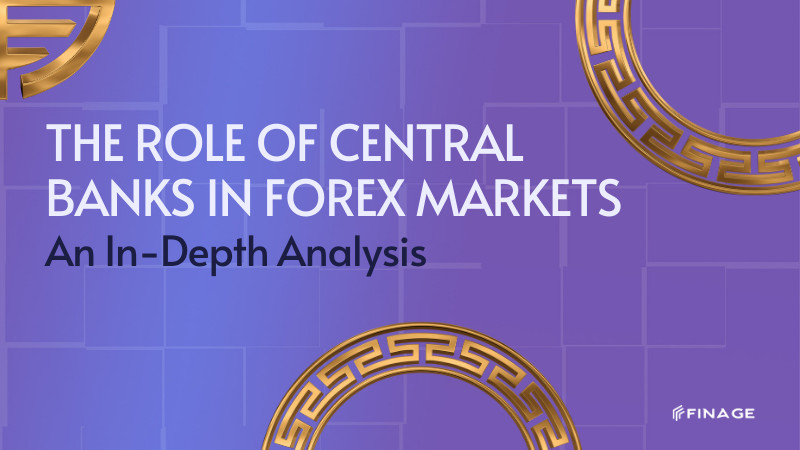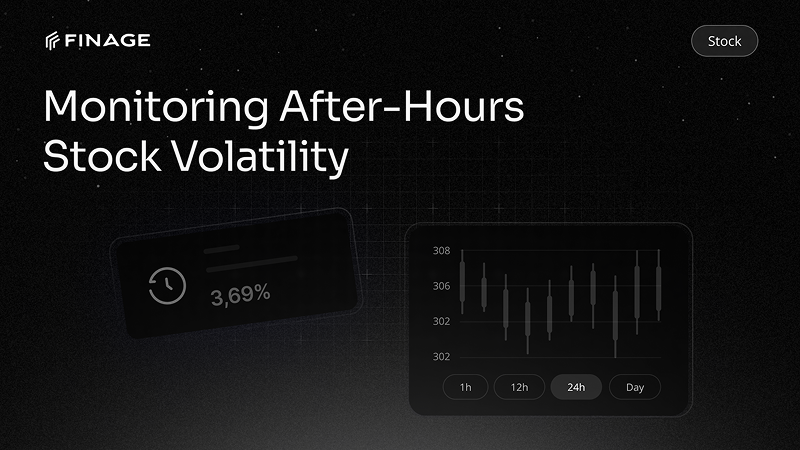The Role of Central Banks in Forex Markets: An In-Depth Analysis
5 min read • December 7, 2023

Introduction
Table of Contents
- Introduction
- Monetary Policy
- Intervention
- Foreign Exchange Reserves
- Policy Communication
- Impact on Inflation
- Impact on Economic Stability
- Financial Market Stability
- Impact on Trade and Capital Flows
- Influence on Exchange Rate Regimes
- Global Coordination
- Conclusion
The foreign exchange (forex) market is one of the largest and most liquid financial markets in the world. It operates 24 hours a day, five days a week, and involves the buying and selling of currencies. While several participants influence forex markets, central banks play a crucial role in shaping the course of currency valuations. This blog will delve into the important factors and mechanisms through which central banks impact forex markets.
1-) Monetary Policy:
Central banks, as the guardians of monetary policy, have a significant impact on forex markets. They use tools such as interest rates, open market operations, and reserve requirements to control the money supply of their respective economies. When a central bank increases interest rates, it attracts foreign capital seeking higher returns, consequently strengthening the currency. Conversely, lowering interest rates tends to discourage foreign investment, leading to currency depreciation.
2-) Intervention:
Central banks may directly intervene in forex markets to stabilize or influence the value of their currency. Intervention can take various forms, such as buying or selling currencies, to maintain a desired exchange rate level. By buying domestic currency with foreign exchange reserves, a central bank can increase demand for its currency, thus driving up its value. Conversely, selling its currency can help weaken the value when it is deemed to be too strong.
3-) Foreign Exchange Reserves:
Central banks manage foreign exchange reserves, which are held in various currencies to facilitate international transactions and ensure stability. These reserves provide central banks with the ability to intervene in forex markets during times of economic instability or excessive volatility. Large reserves can make a central bank more effective in managing its currency's value, as it signals confidence and the ability to support the currency when needed.
4-) Policy Communication:
Central banks have a significant influence on forex markets through their policy communication. Announcements made by central bank officials, especially those related to future interest rate decisions or changes in monetary policy, have a direct impact on market sentiment and can cause significant currency movements. Traders carefully analyze these statements to gauge the future direction of a currency and adjust their investment decisions accordingly.
5-) Impact on Inflation:
Central banks play a vital role in managing inflation, indirectly affecting forex markets. By controlling the money supply and interest rates, central banks aim to maintain price stability. Higher inflation erodes the purchasing power of a currency, prompting investors to move their funds to countries with lower inflation rates. Consequently, a central bank's ability to manage inflation influences the attractiveness and value of the currency.
6-) Impact on Economic Stability:
Central banks also play a crucial role in maintaining economic stability, closely intertwined with currency valuations. By utilizing monetary policy tools, central banks can help control inflation, manage economic cycles, and foster sustainable growth. When a country's economy is stable and growing, its currency often becomes more attractive to investors, leading to appreciation. On the other hand, economic instability or recession can result in currency depreciation.
7-) Financial Market Stability:
Central banks have a responsibility to ensure the stability and integrity of financial markets, which includes the forex market. They monitor market activities and intervene when necessary to prevent excessive volatility or disorderly market conditions. Central banks may implement measures to enhance market transparency, establish regulations, and provide liquidity during times of market stress. These actions help maintain confidence in the currency and contribute to the overall stability of the forex market.
8-) Impact on Trade and Capital Flows:
Changes in currency valuations influenced by central bank actions can have a significant impact on a country's international trade and capital flows. A stronger currency can make a country's exports more expensive, potentially reducing its competitiveness in the global market. Conversely, a weaker currency can boost exports and attract foreign investment. Central banks must carefully manage these dynamics to support their economy's trade balance and ensure sustainable economic growth.
9-) Influence on Exchange Rate Regimes:
Central banks are often responsible for managing and determining the exchange rate regimes of their respective countries. An exchange rate regime refers to the framework under which a country's currency is valued against other currencies. Central banks can choose between fixed exchange rate systems, floating exchange rates, or a combination of both. The choice of exchange rate regime has significant implications for forex markets and can impact currency values and trading strategies.
10-) Global Coordination:
Central banks also engage in international cooperation and coordination to manage forex markets effectively. Organizations such as the International Monetary Fund (IMF) and the Bank for International Settlements (BIS) facilitate discussions and collaboration among central banks. Exchange rate stability and avoiding excessive volatility are common goals shared among central banks globally. Coordination allows central banks to work together to address common challenges and maintain the stability of global forex markets.
Conclusion
The role of central banks in forex markets cannot be overstated. Through monetary policy, intervention, management of reserves, policy communication, and impact on economic and financial stability, central banks exert considerable influence on currency valuations. Traders, investors, and policymakers closely monitor central bank activities to navigate the complexities of forex markets and make informed decisions. Understanding the role of central banks is essential for anyone seeking to comprehend the intricacies of forex trading and its impact on global economies.
Elevate your financial insights with Finage! Dive into a world of dynamic data and real-time market intelligence that empowers you to make informed decisions. Our blogs are your gateway to the latest trends, expert analyses, and invaluable tips that can transform the way you approach finance. Join the Finage community today and stay ahead of the curve. Take charge of your financial journey – explore, learn, and thrive with Finage at your fingertips. Don't miss out on the financial revolution; seize the opportunity to excel and shape your success. Start reading now and unlock a wealth of knowledge that propels you toward financial mastery!
You can get your Real-Time and Historical Forex Data with a free Fx Data API key.
Build with us today!
Claim Your Free API Key Today
Access stock, forex and crypto market data with a free API key—no credit card required.

Stay Informed, Stay Ahead
Finage Blog: Data-Driven Insights & Ideas
Discover company news, announcements, updates, guides and more


